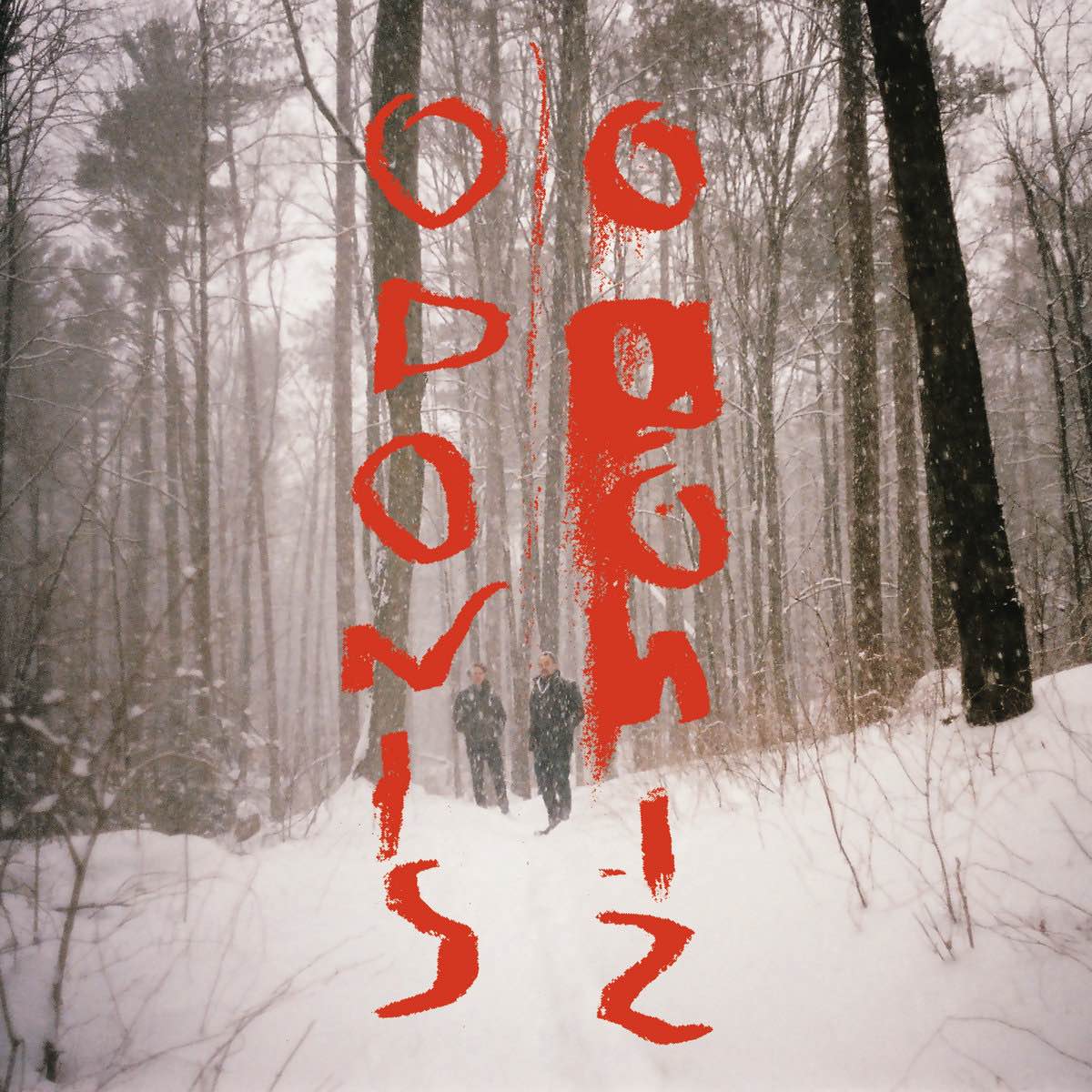Odonis Odonis
Odonis Odonis
ROYAL MOUNTAIN
Providing a post-punk edge to its engrossing shoegaze sounds gives Toronto duo Odonis Odonis’ sixth album a different feel from the distinct darkwave melodies of their past few records. Returning to the heaving industrial noise rock of their early records on their self-titled effort helps Dean Tzenos’ dark, tortured lyrics go down more smoothly, like some sort of numbed, dissociated emotional processing ritual. This particular Hegelian clash of sound and lyrics is reminiscent of the late-’80s era of The Cure, when Robert Smith was pioneering the contrast between pop hooks and morose lyrics. At the same time, their permeating shoegazy reverb forms an added cohesion between tracks, almost like a semicolon of sound loosely connecting the different songs together.
Even though the atmospheric production and catchy rhythms obscure these gloomy lyrics, the juxtaposition between the two makes for an interesting listening experience. On “The Same,” we get a narrative about a girl on a path of self-destruction, conveyed through images of cut wrists and nooses. This track feels Cure-inspired in tone—particularly their more upbeat ’90s era—with the lyrics feeling akin to the band’s darker material heard on Pornography. The rest of the album features a variety of post-punk styles: “Consumed” is the most divergent track, opting for New Order–ish electronica, whereas “Hunter” has a more modern, Ceremony-sounding edge. On many of the tracks, these varying influences fuse into one.
Odonis Odonis’s lyrical content, though, consistently marinates in self-hatred, shame, and self-destruction—the holy trinity in goth music. Despite these commonalities between Odonis Odonis and their influences, there’s a unique element that sets them apart from typical gothic rock and post-punk. On “Bliss,” we get a more contemplative side of Odonis Odonis. The narrator seems to be searching internally for something other than pain, possibly a spark of hope to contain and understand these difficult feelings. This final track works as a cathartic release from the emotional ride of the rest of the album, much in the same way “Hurt” functions as a sort of prayer at the end of the darkness that is The Downward Spiral.
Additionally, the record’s production and atmosphere keeps Odonis Odonis cohesive as the duo are able to play with different flavors of noise rock and industrial electronic music while exploring the darkest aspects of the psyche. The album works because of its simplicity: It’s solid post-punk with no frills and plenty of homage to their influences.







